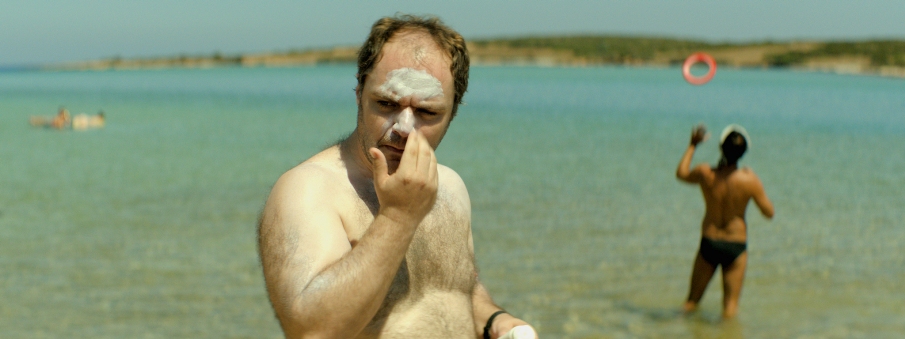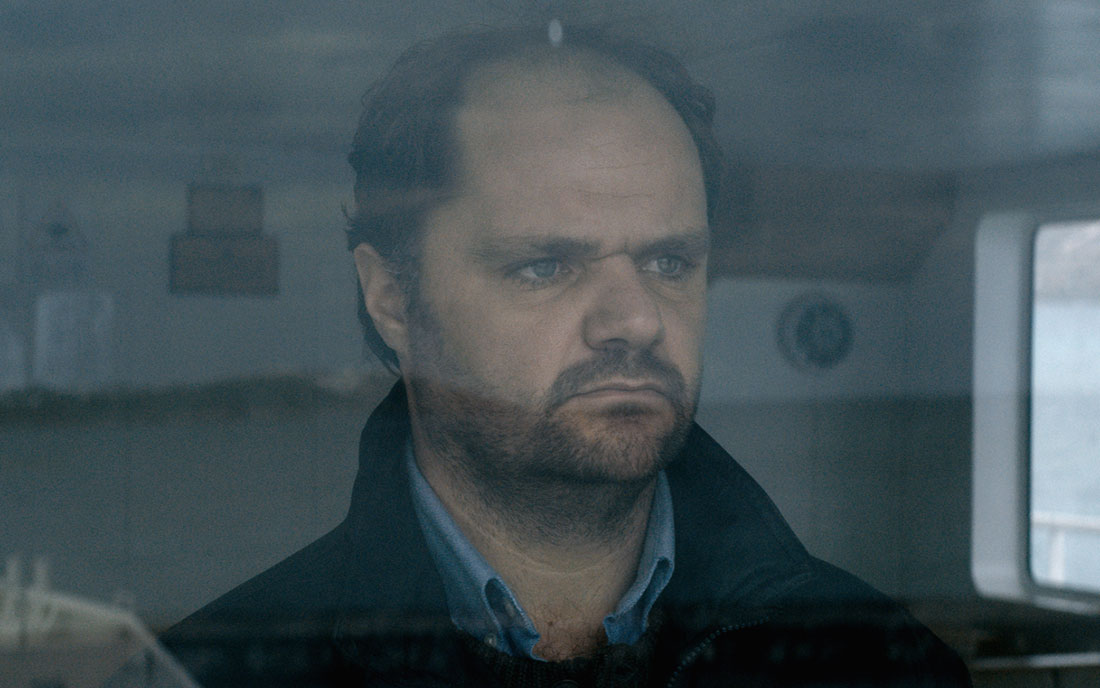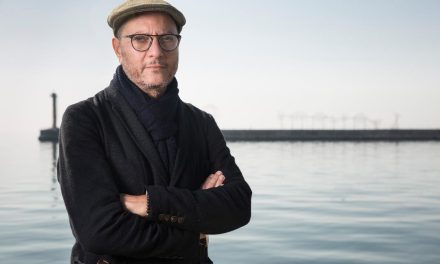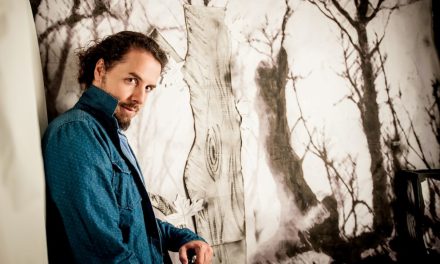Argyris Papadimitropoulos was born in Athens in 1976. His latest film, “Suntan” (2016), after a comedy titled “Bank Bang” in 2008 and 2011’s “Wasted Youth”, is his most personal one and premiered at the Rotterdam Film Festival and SXSW’s Narrative Spotlight. Suntan has won the Best Foreign Film award at the Edinburgh International Film Festival (UK) and the Mamers en Mars (France), the youth jury award in Brussels and Best Screenplay at the Belgrade International Film Festival (Serbia). It has won Best Global Film award at the Oaxaca International Film Festival (Mexico), as well as Best Film, Best Director, Best Cinematography, Best Screenplay, Best Supporting Actress and Best Actor at the Hellenic Film Academy – Iris Awards.
“Suntan” is about the obsession of Kostis, a loner in his 40s, working as a doctor on the island of Antiparos, with Anna, a young and beautiful tourist on vacation there with friends. Their encounter will open Pandora’s box for Kostis, who gradually loses grip with reality. Greek News Agenda interviewed* Argyris Papadimitropoulos on why some bronze while others burn in this “coming of middle age” film. Papadimitropoulos also talks about how he builds an invisible narration in his film, open to the viewer to produce his own meaning. Asked about contemporary Greek cinema production, he stresses that Greek film production is blooming, but the term weird wave is doing injustice to the artistic product of his generation.
How do you react to various readings of your film?
I take delight in them. I love the idea of the spectators working on my film and being producers of their own meanings. I don’t want my texts to be “locked”. I like it when my films spark disputes and passion.
Why doesn’t the film (anti)hero stop? Why does he have to fall so low? Is he being punished for something (not realizing where he stands or for his obsession) or is it just the way life is?
It’s not that he has to fall low. He just happened to fall. Some people fall, others don΄t. By no means am I a moralist. Neither do I say that when you get older you aren’t entitled to sensual pleasures anymore. I am saying exactly the opposite: any one is entitled to as many pleasures as possible. But you can’t always get what you want. That’s life. The problem of Kostis, the hero, is that he cannot decode the messages he receives. Anna, the woman he desires, is a free spirit that doesn’t want to commit and that is clear from the beginning. He doesn’t seem to understand that.
Now as regards why he doesn’t go away, Kostis is not the kind of person that stops. He has never been in a similar situation in his life; he has never tasted pleasure at the right time. He gets at the lowest point of his existence, in a situation he can’t get out of. But this is the point I want to make, that people can resurface even at the last moment.
Suntan revolves around contrasting concepts (youth versus decay, the hard working villagers as opposed to the hard partying tourists, the bright summer against the dark theme of the film etc). What attracts you to contrasts?
Contrasts compose my everyday life, the mercurial ups and downs of my own emotions between joy and sorrow, an alternation which constitutes a part of the human condition. So they help me say more things, form my characters and show their internal conflicts. What I’m trying to do as a director is to say what I want to say without words. I don’t like didactic films or preachy directors.

The starkest contrast is between Anna and her young and privileged lot and Kostis, the one who is lagging behind both sexually and socially. Why do you embrace both sides?
I’m interested in both sides of the story. There is indeed a sociopolitical dimension in their divide. Kostis is not and will not become one of them. I try to depict life as it is and I am a firm believer that no matter how bad things are, you can subvert it and change it.
The way you depict life on the island creates a sense that you don’t interfere in filming.
I like to have this effect in my films. Actually, the truth is the exact opposite. Everything is fiction that I place in a real environment with real people instead of background actors. The final outcome is the product of meticulous preparation in order to look spontaneous.
Has your career in commercials helped you in that?
Advertising offers me the possibility to continuously practice the use of cinematic language. For me, directing and choosing what lens to use comes very naturally. I also have close cooperation with Christos Karamanis, Director of Photography in the film, with whom I have been working for many years. We both make decisions regarding the film. Another helpful element for me is that I deal with situations I am well acquainted with and film in places that are very familiar to me. To be honest, few things are more familiar to me than a forty year old partying in Antiparos.

Apart from Kostis being a doctor, the film deals almost medically in its anatomy of loneliness and the feeling of rejection. Which techniques did you use to achieve this effect?
Loneliness is an issue that existed before the economic crisis. It will exist after the crisis, and surely worsens with the crisis. Most humans do not know how to handle rejection. Human beings want to be loved the way they want and this is where tragedy comes from. I believe that Anna loved Kostis in her own way, in the way that the feeling of power stemming from her youth and beauty imposed. Everything turned badly when Kostis tried to impose his own rules. As regards how I created this ‘anatomy’, the answer is by observing people. That’s what I mostly do in Antiparos. I observe the people crossing the street or sitting next to me, contemplating what their story might be.
What do you think about contemporary Greek cinema production?
I think it’s exquisite, despite the size of the country and the indifference of the state. Many and great films are produced each year.
Why is there is an increased presence of Greek films at international Film Festivals?
I think that after the success of certain Greek films at international festivals, Greek productions entered into their radars.
In that sense Giorgos Lanthimos had an important role to play.
Of course. He has made excellent films and through those films he has created a strong trademark for Greek film abroad.
What do you think of the term “Weird Wave”?
I don’t mind that term. I just don’t think it does the films justice. What my generation does is much better than simply weird. I think the stories our films say are beautiful, too beautiful to be weird. And there is no weird wave, because there no common stylistic, aesthetic and thematic traits. Every artist does as he pleases, so there is no wave. Nevertheless, we closely collaborate and help each other.
One last question: How do you think people overcome their traumas?
I don’t know. I haven’t overcome mine yet.
* Interview by Florentia Kiortsi
Read also: Variety’s film review, Movie Maker: Lonely Island: Argyris Papadimitropoulos on Middle Age Frustration and Shooting Suntan Without a Script, New York Times Review: Seduced by Youth in ‘Suntan,’ and Refusing to Let Go, Village Voice: From Greece, ‘Suntan’ Plunges the Madness of Old Schlubs Pursuing Young Beauties
TAGS: INTERNATIONAL RELATIONS













